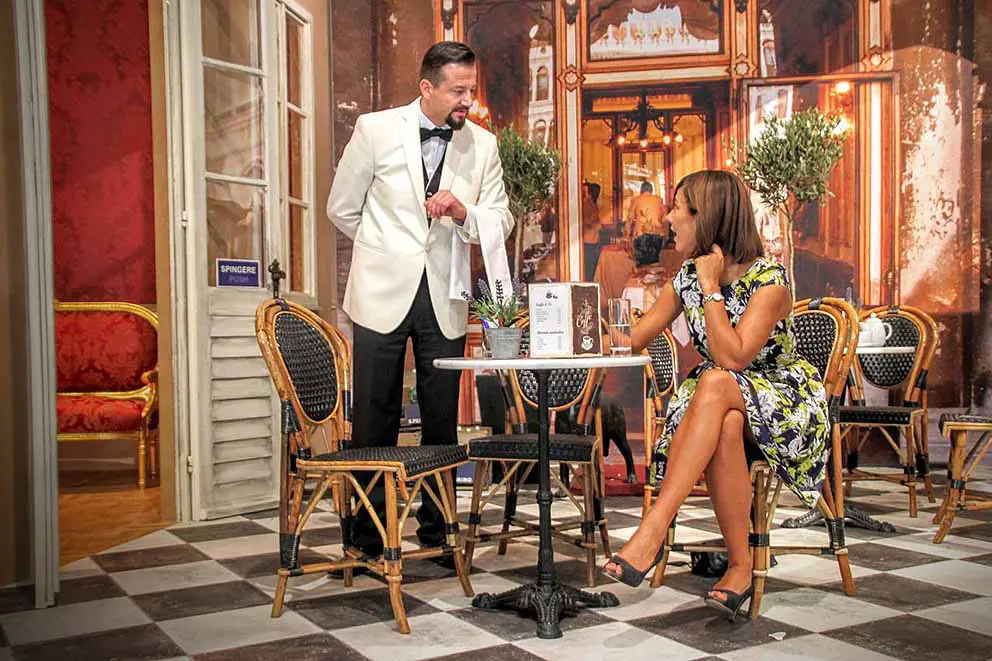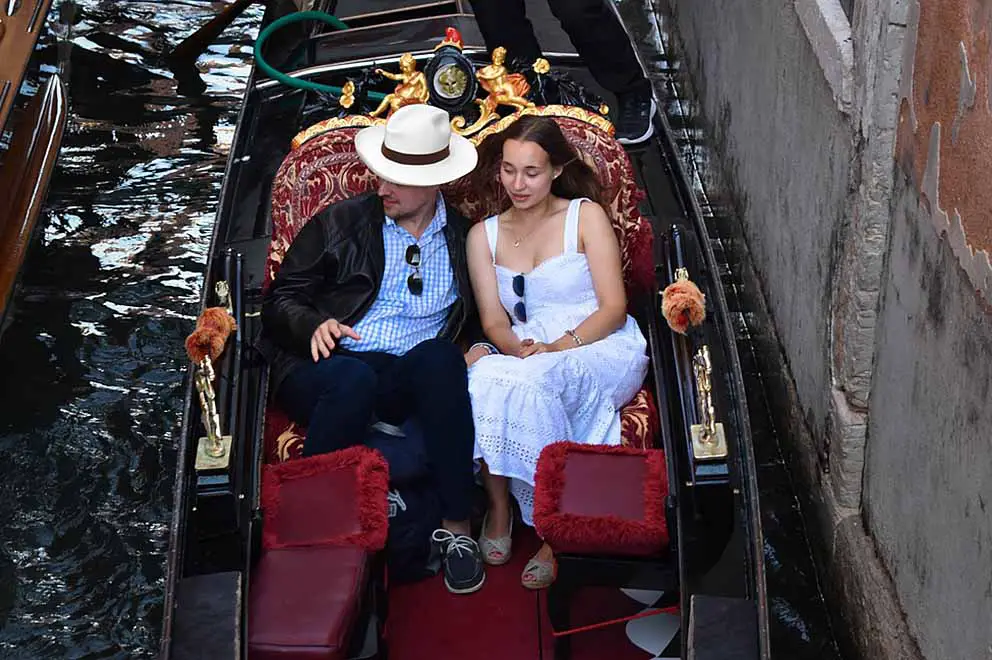Is it someone’s birthday?! Is that someone an Italian?! You mean they are ready to celebrate their birthday with a birthday party, delicious cakes, steaming first and second courses, and neatly arranged appetizers on sparkling tin plates? Then, pay extra attention because you have to wish them Happy Birthday in Italian language the right way!
These days, the most basic phrases for wishing an Italian a happy birthday can work on social media, especially when you do not meet them often. In that case, they will appreciate your message no matter what you write. But if you plan to meet and greet that person, you have to avoid some off-limit topics. Because you see, wishing happy birthday to an Italian is as much about celebrating their birthday as it is about not making a bad impression.
Getting To That Birthday Party — How To Say Happy Birthday In Italian
Here is the action plan. First, we are going to learn the most basic way to say happy birthday in Italian. It will serve as a reference point in case you find yourself with nothing to say or prefer using shock tactics. Since Italians are vulnerable to physical displays of affection, the latter approach may work. But it will increase the risk factor.
For a more inclusive plan, we will delineate no-go areas of discussion. I repeat, avoid those topics at all costs. Be ready, act quickly, and get back to base safe and sound. You hear me? Let’s get to work!

Buon Compleanno
Here is the standard translation of happy birthday in Italian. Coupled with “Tanti auguri” (lit. “Best wishes”) or “Tanti Auguri di” (“Best wishes of”), it forms the standard phrase and stand-alone sentence “Tanti auguri di buon compleanno.”
You do not have to capitalize these words because there is no grammar rule involved besides the preposition “di.” (You cannot use any other preposition here.) However, you might find that capitalizing the words may add that little touch that works on social media like Facebook and Instagram.
Felice Compleanno Insert_Name_Here!
Most Italians strive to keep their written messages and in-person wishes short when wishing a happy birthday. This tradition led to the phrase “Felice compleanno!” which ends the conversation.
Please note that Felice compleanno is the literal translation of happy birthday in Italian. But Buon compleanno is the colloquial term to wish someone a happy birthday both face-to-face or in writing. Felice compleanno only belongs to the end of another sentence or as a stand-alone message, which implies you care little or that it is a formal message.
The stand-alone usage would include the name, but if it is your close friend’s birthday, you had better come up with something to make it special. Of course, you do not need much as long as it is thoughtful or creative. Here are some examples:
- Dato che oggi è il più bel giorno di Febbraio perché è il giorno in cui sei nata/o, non potevo non farti gli auguri! Felice compleanno! — Given that today is the best day of February because you were born on this day, I could not miss the chance to come here and wish it to you. Happy birthday!
- Alla persona più intelligente/bella/etc. che conosco. Felice compleanno! — To the most intelligent/beautiful/etc. person I know. Happy birthday!
- Se fossi lì, ti abbraccerei forte forte! Mi manca la tua solarità. Felice compleanno! — If I were there, I would hug you so much! I miss your upbeat personality. Happy birthday!

Tanti Auguri + Compliment!
On social media, you will find countless examples of Italians avoiding the words “Buon Compleanno” altogether. Are they being rude? Well, not exactly. The simple formula of “Tanti auguri” followed by a compliment is an alternative way to leave a meaningful remark. In theory, it is an attempt to sound informal. You could say that only close friends choose this option over the more formal structures.
The goal is to highlight a positive trait or characteristic. And if you find online an insult after the first phrase, then that person has to be one of their closest friends. Otherwise, it would lead to a legal dispute as Italians are not keen on defaming others, given their judicial system in Italy.
Beginners should stay away from witty remarks. In general, it is better to play it safe until you get their sense of humor, like in the following examples:
- Tanti auguri alla persona più bella della città! — Best wishes to the most beautiful person in town!
- Tanti auguri Giulia! Ogni anno che passa non posso che dire che il tempo passa solo per noi mentre tu resti stupenda! — Best wishes, Giulia! Every year, I have to admit that time seems to pass only for us while you remain as stunning as ever!
- Francesco tanti auguri! Su di te si può sempre contare e oggi sei pure un uomo di un anno più grande di quello che eri ieri. Sono fiero di te! — Francesco, best wishes! I can always count on you, and today you are even one-year manlier than you were yesterday. I am proud of you!—technically, ” fiero [https://www.paulekman.com/blog/sixteen-enjoyable-emotions/] ” is a stronger word than ” proud [https://www.treccani.it/vocabolario/orgoglioso/] ” because it relates to an emotion (“fierezza”) uniquely associated with Italians.
How else do you say Happy Birthday in Italian?
When you want to say ‘Happy Birthday’ to your Italian friends, you will want to bring happiness to them on their day of celebration. So here are few more phrases for birthday wishes, you might want to use.
- I miei migliori auguri al festeggiato! — My best wishes, birthday boy!
- I miei migliori auguri alla festeggiata! — My best wishes, birthday girl!
- Buon compleanno in ritardo! — Happy belated birthday!
- Tanti cari auguri per il tuo compleanno! — Many dear wishes to your birthday!
- Tanti auguri a te, amico mio! — Best wishes to you, my friend! (male)
- Tanti auguri a te, amica mio! — Best wishes to you, my friend! (female)
It is quite common for Italians to invite friends into their homes for the birthday celebrations and you can be contacted even at a very late time. Italians are joyful people who enjoy celebration and having fun in their homes. Pair it with their internationally-renowned dishes and you can imagine how fun and enjoyable it must be at an Italian birthday celebration. Let’s make sure your celebration is ready!
Italian Birthday Traditions
Apart from saying the right words to make the best impression, you should also know how an Italian birthday party works. So we compiled some Italian birthday traditions for you.
Gift Giving
If you want to make a positive impression on an Italian friend, give them a present. This suggestion should not tell you anything new. But you should be aware of the unspoken rules that govern the gift-giving tradition:
- Expensive gifts will earn their respect.
- Handmade presents (mostly cakes and pastries) will give you access to a special place in their hearts.
- Cheap presents will elicit their sympathy.
Italians will scrutinize the gifts they receive. Do not be swayed by their initial pantomime when they receive the gift. That is just a facade.
This Law Is No Laughing Matter
After the mandatory thanks, Italians will go above and beyond to know how much money you spent on them.
If you have bought the present at a discount price, they will find out. If you did not make the cake you claimed to have made yourself, Italians will reverse engineer the recipe and send pictures to their siblings and acquaintances (including the ones who are professional chefs). This happens every day, even at this very moment.
There is no fooling this law. Everything is clear to an Italian who receives a gift, and he or she will not rest or form an opinion about you until every single piece falls into place.
Keep A Smile On Your Face
Commenting on the gift-giving law is strictly forbidden. This is why you have to drop the conversation after you give the gift, as soon as the other person replies by telling you that you did not have to. This is how it works:
- You give an Italian friend a present, and their faces light up. (If they do not respond positively, maybe that was not the right time. Something may be bothering them.)
- They accept the present. Usually, Italian donees do not look at it because the next step is to profusely thank you, saying something along the line that you did not have to. (If they skip this step, maybe they are going through a bad day, but it is not a negative sign.)
- You say something nice about the person and contradict the previous reply by saying that you wanted to give them that particular gift because of some reason. (If you underline the fact that you felt you owe them or because of anything else, you will lose points. Even worse, you may embarrass them.)
- The Italian says thank you one more time, hugs you, or makes a big, fat promise to you, especially if you contacted the person on the phone. (9 times out of 10, that promise is a lie. But they will try to be nice to you every time you two meet. If they do not find a way to return the favor, they are bound by the same law to reciprocate the gift on your birthday.)
Avoiding Disaster-Prone Situations
Your selection of words is critical when wishing a happy birthday in Italian. Why? Because you are supposed to utter just a few words, typically no more than three sentences. The same limit applies when writing a birthday card. Otherwise, they will perceive that your focus is more on you than on them.
Focusing on the person’s qualities is the key. But sometimes, some people, even other Italians, make the wrong remark at the wrong time. The reason for this unpleasant situation usually depends on the generational gap. But you can avoid any severe consequence by sticking to these tips:
- Never mention siblings and parents on a birthday person’s big day. If you do not know for a fact that the person adores the parent or sibling in question, never bring it up. Especially when they share the same physical features. If you do not know their honest opinion on that person, stay away from this topic. This day is about them as individuals.
- Asking about their party or how they will celebrate it might be perceived as rude. Instead, ask them to hang out at a place to celebrate their birthday. Even if they refuse and do not invite you to their party, your reputation will increase.
- In a formal environment, getting creative is in bad taste. It is better to say “Tanti auguri di buon compleanno.” or “Le auguro buon compleanno da parte mia e del mio ufficio. Tanti auguri.” (My staff and I want to wish you a happy birthday. Best wishes.) Wait after the work hours if you plan to wish them a creative happy birthday in Italian.
How to write a Birthday Card in Italian?
As we already mentioned above, when you want to write a birthday card in Italian you should keep it short. The phrase “Buon Compleanno” and a few words are usually enough for Italian birthday greetings. When you are invited into the birthday person’s house, you should a birthday gift, but bringing a card as well is not necessary. So cards are more an item to send via mail when you are not attending the birthday celebrations.

How to say “Birthday Cake” in Italian: Torta di Compleanno
A birthday cake (torta di compleanno) is an integral part of birthday traditions in Italy. It is usually home made, but sometimes the guests order it and decorate it with candles (candele). Once the candles are lit, the birthday cake is brought to the birthday girl / birthday boy. Usually accompanied by a tradition known almost anywhere in the world: The guests sing the Happy Birthday song, and the birthday person has to blow out the candles. And while doing so, the birthday person can make a wish.

How to Say “Party” in Italian: Festa
Birthday parties are very popular in Italy. There is no fixed schedule or typical birthday recipes. Although we all have the idea of pasta and pizza, the cuisines in Italy are pretty varied depending on the region. Dishes in areas near the coast will mainly consist of fish and sea food, while in mountain regions people often cook venison and mushrooms. All in all, birthday pasties are typically held in the house, so the host can choose whatever he or she prefers.
When it’s a kid’s party, the parents normally organize “giochi” (games) for the children. Parties for adults and adolescents can be “un festa a tema” (a theme party). Or friends might organize “una festa a sorpresa” (a surprise party) for the birthday person.
How to Sing Happy Birthday to You in Italian
The Happy Birthday song is known almost anywhere in the world. And a traditional part of any Italian birthday. The lyrics are as easy in Italian as they are in English, so anyone can join in.
Happy Birthday to You Lyrics in Italian
Tanti auguri a te
tanti auguri a te
tanti auguri felici
tanti auguri a te
Instead of “felici” (meaning “happy”) you can also sing the name of the birthday boy / girl in question





